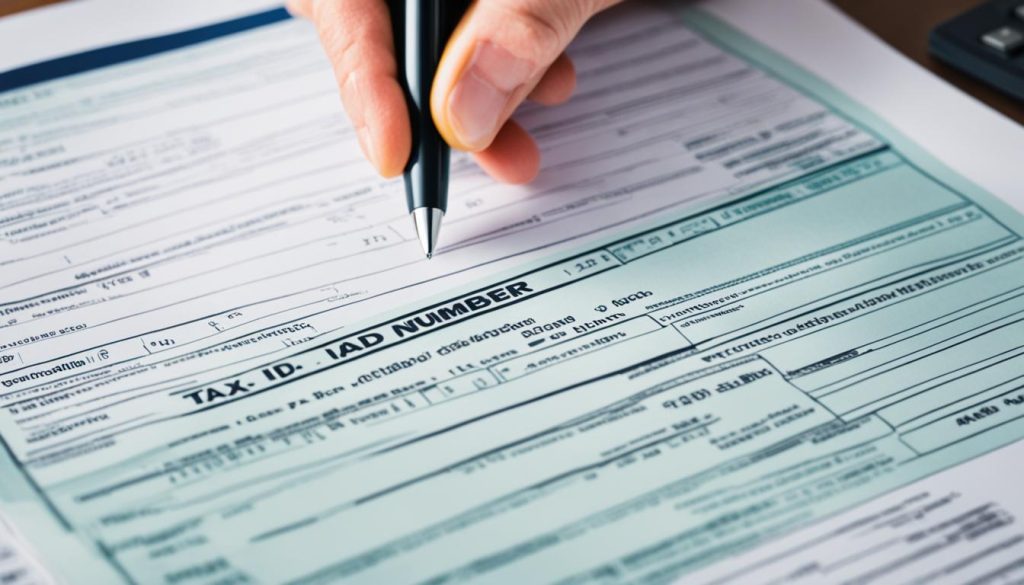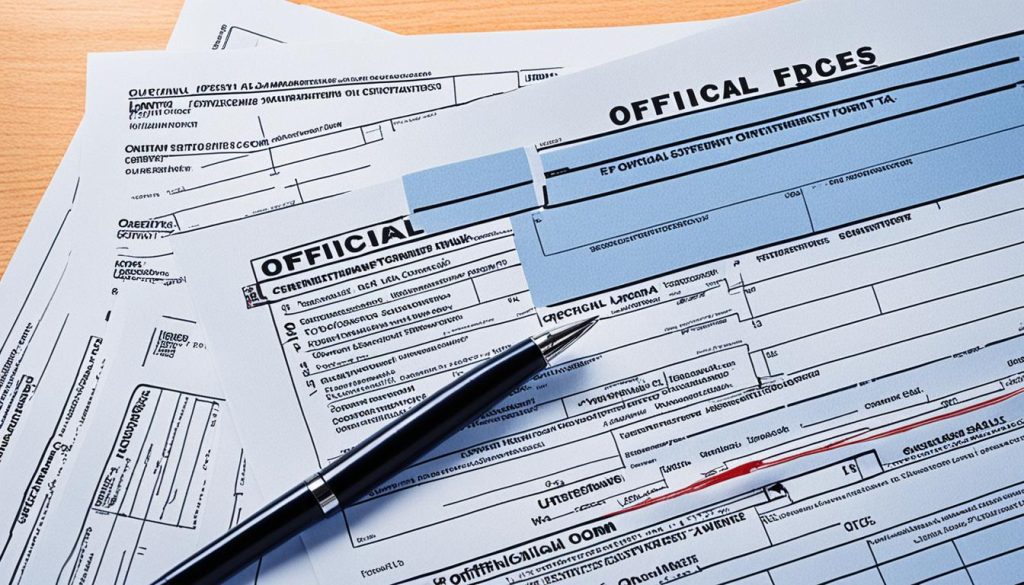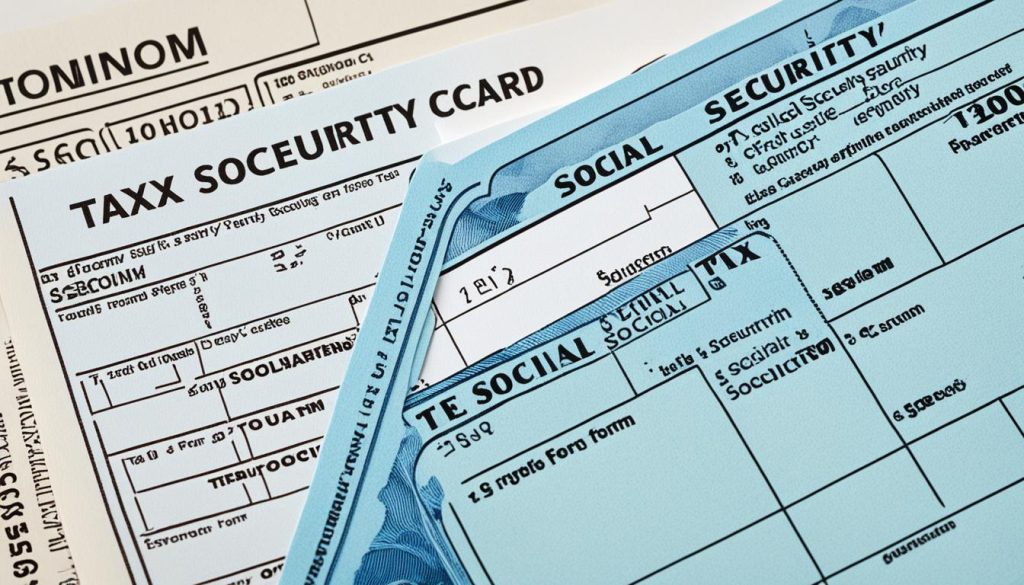Welcome to our beginner’s guide on tax ID numbers. Whether you’re a new employee, a business owner, or someone navigating the complex world of taxes, understanding what a tax ID number is and its significance is crucial. In this article, we’ll break down the definition of a tax ID number and explore its various names, such as a tax reference number, national insurance number, employee identification number, social security number, and personal identification number.
What Is a Tax ID Number?
In the UK, a Tax ID Number is commonly referred to as a National Insurance Number (NINO). This unique identifier is issued by HM Revenue and Customs (HMRC) and serves as a way to track individuals for tax and social security purposes. The National Insurance Number is crucial for working legally in the UK, as it ensures that individuals pay the correct amount of taxes based on their earnings.
It is also used to determine eligibility for certain benefits and pensions. Your National Insurance Number is allocated to you when you start working or apply for benefits, and it is important to keep it secure and confidential to protect your personal information and ensure compliance with tax regulations.
Types of TINs (Tax Identification Numbers)
Understanding tax ID numbers is essential for navigating the UK tax system. There are several types of tax ID numbers that serve specific purposes and are assigned based on tax filing requirements. Let’s explore the most common ones:
1. Employer Identification Number (EIN)
The Employer Identification Number (EIN) is a unique identifier used by businesses for tax purposes. It is assigned by HM Revenue and Customs (HMRC) to businesses that have employees or meet certain tax obligations. The EIN helps businesses accurately report income, deduct expenses, and fulfill their tax responsibilities.
2. Social Security Number (SSN)
The Social Security Number (SSN) is an important tax ID for individuals. It is used to track an individual’s earnings and benefits in the UK. The SSN is primarily associated with social security contributions, pension eligibility, and access to government benefits.
3. Individual Taxpayer Identification Number (ITIN)
The Individual Taxpayer Identification Number (ITIN) is assigned to individuals who are required to file tax returns but don’t qualify for a Social Security Number (SSN). It is commonly used by non-resident aliens, their dependents, and individuals who do not have the right to work in the UK but have tax filing obligations.
These various types of tax ID numbers play a crucial role in ensuring accurate tax reporting and compliance with tax laws. Now that you have a better understanding of tax ID numbers in the UK, let’s explore how to obtain a tax ID number in the next section.

How to Obtain a TIN (Tax ID Number)?
To obtain a Tax ID Number in the UK, individuals or businesses need to apply through the appropriate channels. The process may vary depending on the type of tax ID number required. For example, individuals can apply for a National Insurance Number (NINO) through HM Revenue and Customs (HMRC), while businesses may need to register with Companies House or apply for an Employer Identification Number (EIN). The specific steps and requirements for obtaining a tax ID number can be found on the relevant government websites or by contacting HMRC.
In the case of individuals, applying for a National Insurance Number (NINO) is an essential step in the process. This unique identification number is required for individuals who want to work in the UK, access certain social benefits, or file a tax return. To apply for a NINO, individuals can start by contacting the HMRC helpline or visiting their website. The application process typically involves filling out a form, providing proof of identity and residence, and attending an interview to verify the application.
For businesses, the process of obtaining a Tax ID Number will depend on their legal structure and business activities. Sole traders and partnerships may need to register as self-employed with HMRC and obtain a Unique Taxpayer Reference (UTR). This can be done online through HMRC’s website or by filling out the relevant forms and sending them by post. Limited companies, on the other hand, need to register with Companies House and obtain a Company Registration Number (CRN). The CRN will serve as the company’s tax ID number. Businesses that are not incorporated, such as freelancers or independent contractors, may also need to apply for an Employer Identification Number (EIN) if they hire employees or need to report income taxes.
Regardless of the type of tax ID number needed, it is important to consult the official government websites or contact HMRC directly for accurate and up-to-date information on the application process. These resources will provide detailed guidelines and requirements, making it easier to navigate the process and ensure compliance with tax regulations.

What Documents Do I Need to Get a Tax ID Number?
The process of obtaining a Tax ID Number in the UK requires certain documents depending on the type of tax ID and the individual or business’s circumstances. Whether you are applying for a National Insurance Number (NINO) as an individual or an Employer Identification Number (EIN) for your business, you will need to gather the necessary paperwork to complete the application.
Document Requirements for National Insurance Number (NINO)
If you are applying for a National Insurance Number (NINO) as an individual, you will typically need to provide the following documents:
- Proof of identity, such as a valid passport or driving license.
- Proof of residence, such as a utility bill or bank statement with your current address.
- Documentation confirming your eligibility to work in the UK, such as a visa or residence permit.
Document Requirements for Employer Identification Number (EIN)
If you are a business applying for an Employer Identification Number (EIN), the document requirements may encompass:
- Documentation related to your business’s legal structure, such as a certificate of incorporation or partnership agreement.
- Proof of business activities, which can include invoices, contracts, or business financial statements.
- Registration details with Companies House or other relevant authorities.
It’s important to note that the specific documentation requirements may vary based on the type of tax ID and individual circumstances. Therefore, it’s best to consult the relevant government websites or contact HM Revenue and Customs (HMRC) for accurate and up-to-date information.

When is a TIN (Tax ID Number) Required?
A Tax ID Number is a crucial requirement in various situations, depending on the circumstances of individuals and businesses. Let’s take a look at when and why you may need a Tax ID Number:
Individuals
Individuals in the UK may require a Tax ID Number, such as a National Insurance Number (NINO), in the following situations:
- Starting work in the UK: When you begin employment in the UK, your employer will require your National Insurance Number for tax purposes and to ensure that you are enrolled in the national insurance program.
- Filing tax returns: As an individual, if you are earning income that is subject to taxation, you will need a Tax ID Number to file your tax return accurately and comply with tax laws.
Businesses
Businesses, including self-employed individuals and freelancers, often require a Tax ID Number, such as an Employer Identification Number (EIN), for the following scenarios:
- Hiring employees: When you hire employees for your business, you will need an Employer Identification Number (EIN) to report their wages and fulfill your tax obligations as an employer.
- Applying for business licenses: Many local authorities and regulatory bodies require businesses to provide their Tax ID Number, such as an EIN, when applying for licenses or permits.
- Filing tax returns: Businesses, including self-employed individuals and freelancers, need a Tax ID Number to accurately report their income and expenses, calculate their tax liability, and file their tax returns.
Having a Tax ID Number is crucial for individuals and businesses to comply with tax laws, fulfill their tax obligations, and ensure smooth financial operations. It is advisable to obtain the necessary Tax ID Number as early as possible to avoid any delays or issues in your personal or business financial matters.

| Individuals | Businesses |
|---|---|
| Starting work in the UK | Hiring employees |
| Filing tax returns | Applying for business licenses |
Tax ID Number Vs. Social Security Number
In the United Kingdom, a Tax ID Number and a Social Security Number (SSN) serve different purposes. Let’s explore the difference between these two identifiers.
Tax ID Number (TIN)
A Tax ID Number is a unique identifier used for tax and financial purposes. It helps track tax obligations and facilitates tax-related transactions for individuals or businesses.
- A Tax ID Number for individuals is commonly known as a National Insurance Number (NINO).
- Businesses may obtain a Tax ID Number, such as an Employer Identification Number (EIN).
Individuals use their National Insurance Number (NINO) to fulfill their tax obligations and access various government benefits and services.
Social Security Number (SSN)
A Social Security Number (SSN) is primarily used for social security benefits and personal identification in the UK. It uniquely identifies individuals.
Unlike a Tax ID Number, the main purpose of an SSN is not directly related to tax or financial transactions. It is essential for accessing social security benefits and services.
Now, let’s visualize the difference between a Tax ID Number and a Social Security Number using a comparative table:
| Tax ID Number | Social Security Number |
|---|---|
| Used for tax and financial purposes | Primarily used for social security benefits and personal identification |
| Assigned to individuals or businesses | Uniquely identifies individuals |
| Examples include National Insurance Number (NINO) and Employer Identification Number (EIN) | Specifically referred to as a Social Security Number (SSN) |
By understanding the difference between a Tax ID Number and a Social Security Number, individuals and businesses can navigate tax and financial processes more effectively.

Benefits of Having a Tax ID
Having a Tax ID Number offers several benefits for individuals and businesses. These include facilitating compliance with tax laws, streamlining financial operations, accessing financial services, building credibility with stakeholders, and securing funding. Tax ID Numbers help ensure accurate reporting of income and taxes, simplify tax filings, and demonstrate responsible financial management.
Compliance with tax laws is of utmost importance for individuals and businesses alike. A Tax ID Number provides a unique identifier that allows tax authorities to identify and track the tax obligations of individuals and businesses. By having a valid Tax ID Number, individuals can accurately report their income and ensure they fulfill their tax obligations, avoiding any legal consequences or penalties.
For businesses, a Tax ID Number, such as an Employer Identification Number (EIN), proves crucial in ensuring smooth financial operations. It allows businesses to open bank accounts, hire employees, and apply for licenses or permits. Having a Tax ID Number streamlines financial transactions and helps businesses maintain proper financial records, which is essential for financial management.
Acquiring a Tax ID Number also enables individuals and businesses to access various financial services. Many financial institutions require a Tax ID Number when individuals or businesses apply for loans, credit cards, or other financial products. By having a Tax ID Number, individuals can enhance their financial opportunities and access the services they need to support their personal or business finances.
Furthermore, a Tax ID Number helps individuals and businesses build credibility with stakeholders, including clients, suppliers, and partners. When conducting business transactions or entering into contractual agreements, having a Tax ID Number demonstrates professionalism and a commitment to compliance with tax regulations. This can instill trust and confidence in the minds of stakeholders, contributing to the growth and success of individuals and businesses.
In addition, a Tax ID Number can play a vital role in securing funding for businesses. Investors and lenders often require businesses to provide their Tax ID Numbers as part of the due diligence process. The presence of a Tax ID Number signifies that the business is legitimate and compliant with tax laws, increasing the likelihood of securing financial support.
In conclusion, having a Tax ID Number is essential for individuals and businesses to ensure compliance with tax laws, streamline financial operations, access financial services, build credibility, and secure funding. It offers a range of benefits that contribute to accurate tax reporting, simplified tax filings, and responsible financial management.
Common Mistakes to Avoid When Applying for a Tax ID Number
When applying for a tax identification number (TIN) in the UK, also known as a National Insurance Number (NINO), there are some common mistakes to avoid to ensure a smooth application process. Here are some key mistakes to steer clear of:
- Providing incorrect personal information: Make sure all the information you provide on your application is accurate and up-to-date. Mistakes in your name, address, or other personal details can lead to delays or even rejection of your application.
- Submitting incomplete documentation: Ensure that you have all the required documents ready before starting the application process. This may include proof of identity, proof of address, and any other supporting documents requested by HM Revenue & Customs (HMRC).
- Applying for multiple TINs/NINOs: It is important to apply for only one tax identification number. Applying for multiple numbers can cause confusion and may lead to issues with your tax affairs.
- Not following the application instructions: Read and follow the instructions provided by HMRC carefully when applying for a TIN/NINO. Failure to follow the correct steps or provide the necessary information can result in delays or rejection of your application.
- Not keeping track of your application: Once you have submitted your application for a TIN/NINO, make sure to keep track of its progress. Check for any updates or requests for additional information from HMRC to ensure a timely processing of your application.
- Neglecting to update changes in personal details: If your personal details change after receiving your TIN/NINO, such as a change of address or name, make sure to update HMRC promptly. Keeping your information current will help avoid any discrepancies in your tax records.
- Ignoring deadlines: Be mindful of any deadlines set by HMRC for providing information or completing your application. Missing deadlines can lead to penalties or delays in receiving your TIN/NINO.
By avoiding these common mistakes and being diligent in your application process, you can ensure a smooth and successful acquisition of your tax identification number in the UK.
Conclusion
Obtaining a Tax ID Number is crucial for individuals and businesses in the UK to ensure compliance with tax laws and effectively manage their financial affairs. A Tax ID Number serves as a unique identifier used for various tax purposes, enabling individuals and businesses to fulfill their tax obligations, open bank accounts, hire employees, and apply for licenses or permits.
Understanding the different types of Tax ID Numbers, the application process, and the benefits they offer can help individuals and businesses navigate the complex world of taxes with confidence. Whether it’s a National Insurance Number (NINO) for individuals or an Employer Identification Number (EIN) for businesses, having a Tax ID Number is essential for accurate tax reporting, simplified tax filings, and responsible financial management.
By obtaining a Tax ID Number, individuals and businesses can streamline their financial operations, access financial services, build credibility with stakeholders, and secure funding. It is a valuable tool that facilitates compliance with tax laws and ensures the smooth functioning of financial transactions in the UK. Embracing the importance of Tax ID Numbers empowers individuals and businesses to stay on top of their tax obligations and achieve financial success.
FAQs
Is tax ID the same as national insurance number?
A Tax ID, often known as a Unique Taxpayer Reference (UTR), is different from a National Insurance Number. The UTR is used for tax purposes by HM Revenue and Customs (HMRC), while the National Insurance Number is primarily for tracking individuals’ National Insurance contributions.
Does everyone have a tax ID number UK?
In the UK, not everyone has a Tax ID number. The Unique Taxpayer Reference (UTR) is typically issued to individuals who are self-employed, in partnership, or registered for Self Assessment with HMRC.
What is my UK tax number?
Your UK tax number would likely be your Unique Taxpayer Reference (UTR) if you are registered for Self Assessment with HMRC. This reference number is unique to you and is used for tax-related purposes.
What to do if you don’t have a tax code?
If you do not have a tax code or are unsure about it, you should contact HMRC to clarify your tax situation and ensure you have the correct tax code assigned to you.
Does everyone have a tax code?
Not everyone automatically has a tax code. Tax codes are typically issued to individuals who are employed or receive income that requires PAYE (Pay As You Earn) deductions to be made from their earnings.
Who do I contact to talk about my tax code?
If you have questions or concerns about your tax code, you should contact HM Revenue and Customs (HMRC) for assistance and clarification.
Does everyone have a unique tax code?
Each individual who pays tax in the UK is usually assigned a unique tax code by HMRC. This code helps employers determine the correct amount of tax to deduct from an individual’s income.
Is your national insurance number your tax number?
No, your National Insurance Number is distinct from your tax number. The National Insurance Number is used specifically for tracking your National Insurance contributions, while the tax number, such as the Unique Taxpayer Reference (UTR), is used for tax purposes by HMRC.
What is my unique identifier HMRC?
Your unique identifier with HMRC is your Unique Taxpayer Reference (UTR). This number is used to identify you for tax purposes and is essential for filing tax returns and communicating with HMRC.
Is UTR the same as NI number?
No, the Unique Taxpayer Reference (UTR) is not the same as the National Insurance (NI) number. The UTR is used for tax purposes, particularly for Self Assessment taxpayers, while the NI number is used for tracking National Insurance contributions.
How to get a tax ID number?
To obtain a tax ID number, you need to apply through the relevant tax authority or agency in your country, such as the IRS in the United States or HMRC in the UK. The application process typically involves providing your personal information or business details and may require submitting specific forms online or by mail.
Where to find a tax ID number?
A tax ID number can usually be found on official tax documents, such as your tax return, notice of assessment, or any correspondence from the tax authority. If you have misplaced it, you can request it from the tax authority by providing necessary identification and verifying your details.





